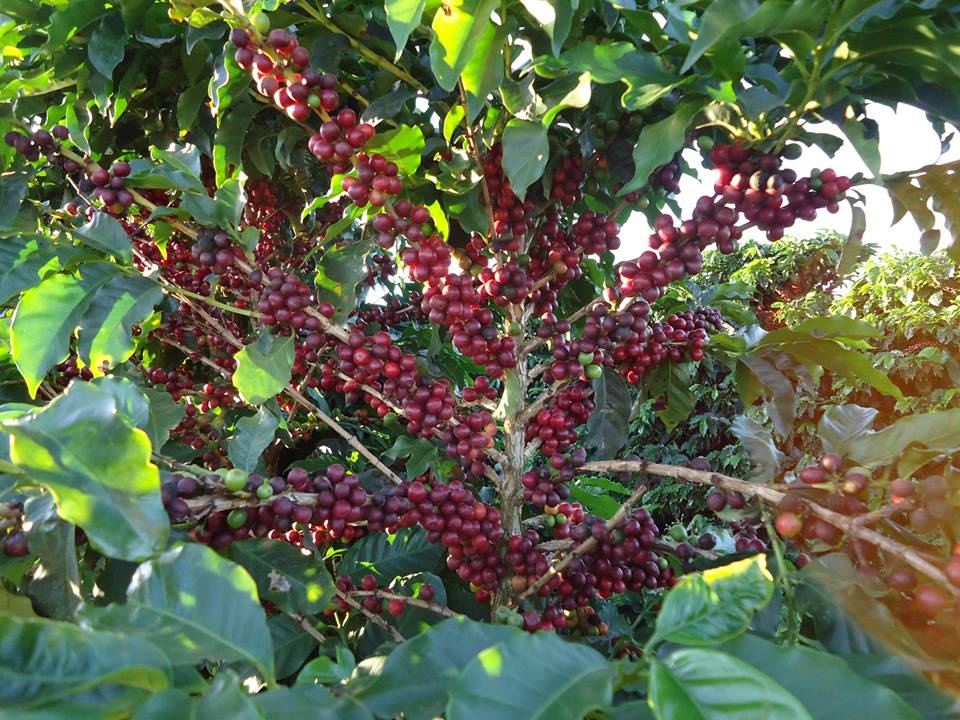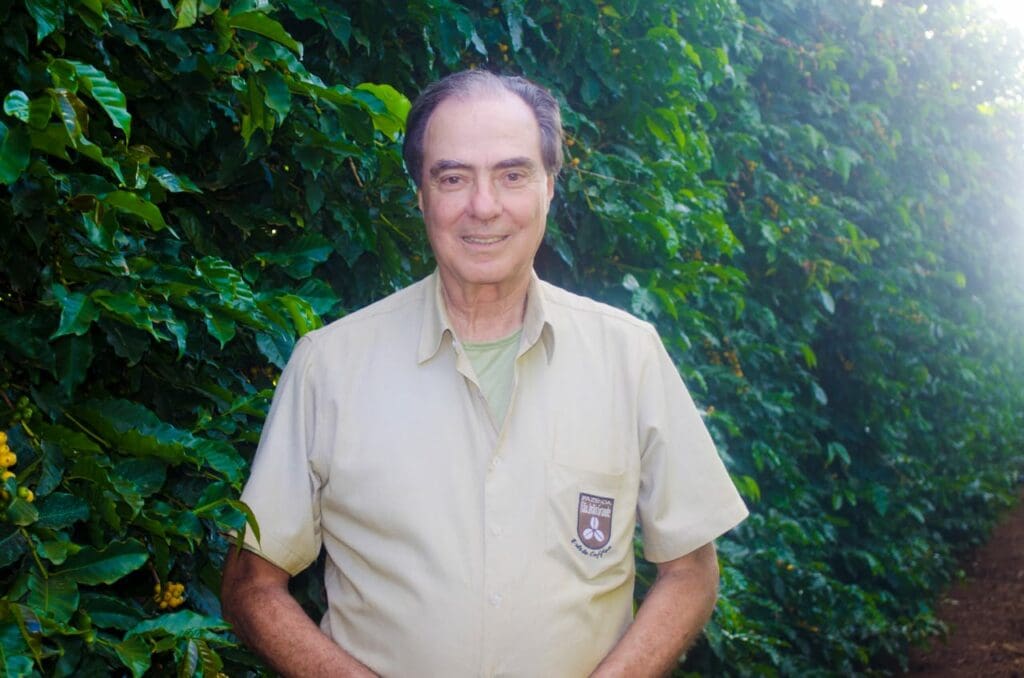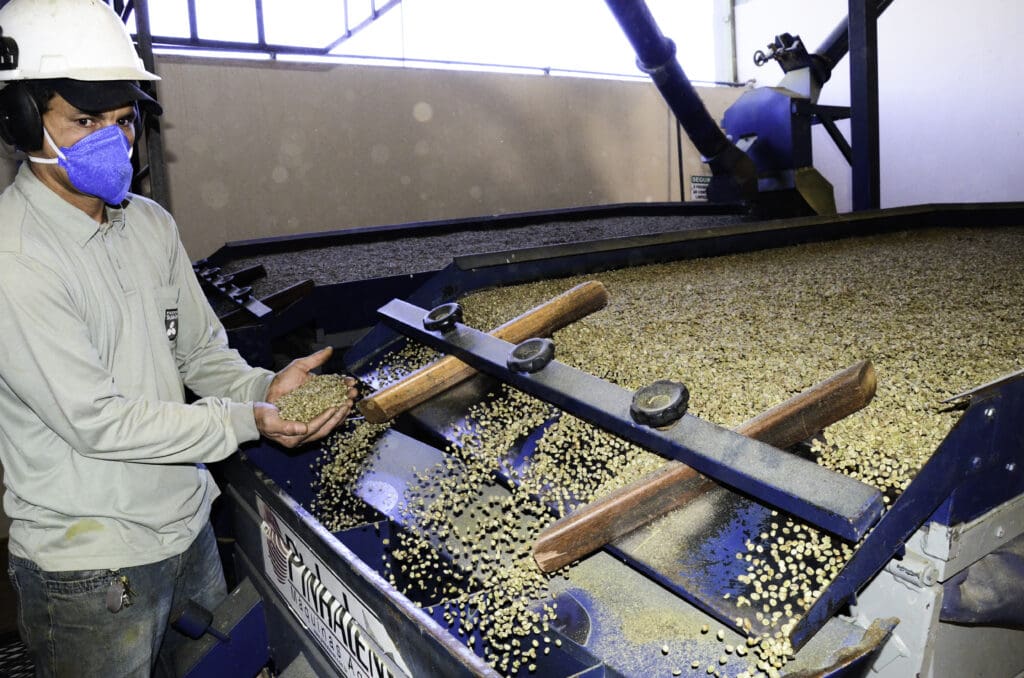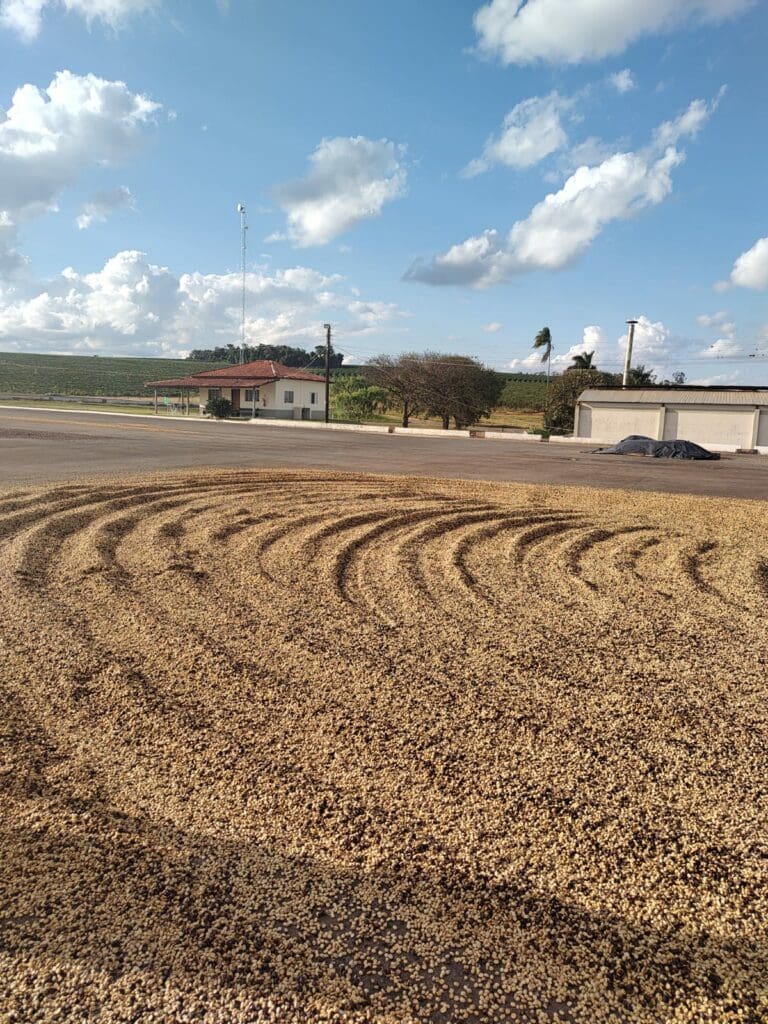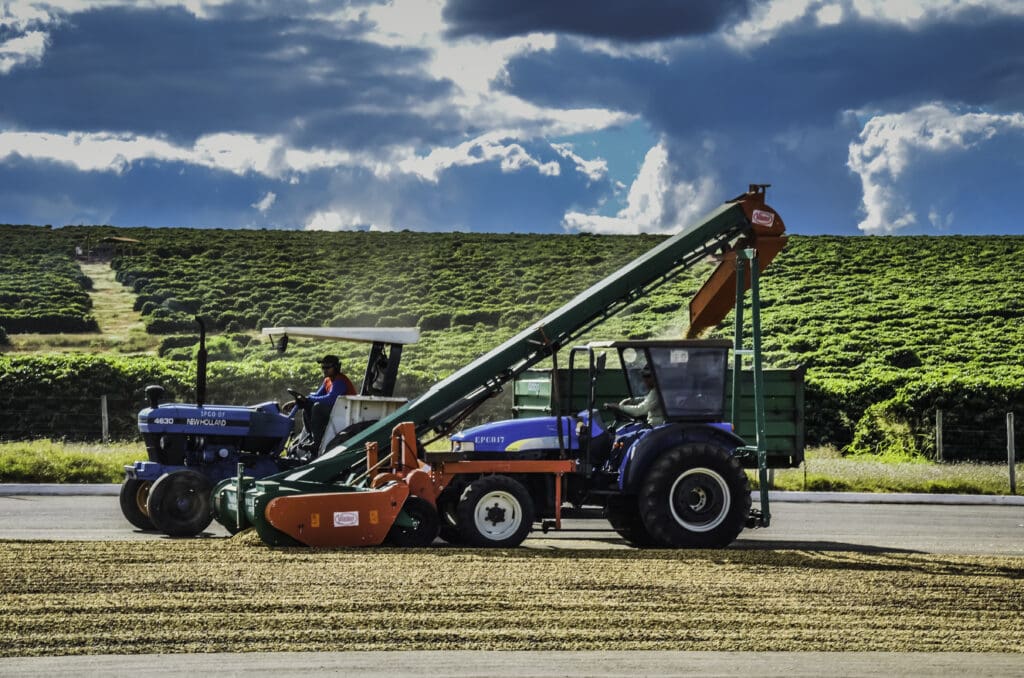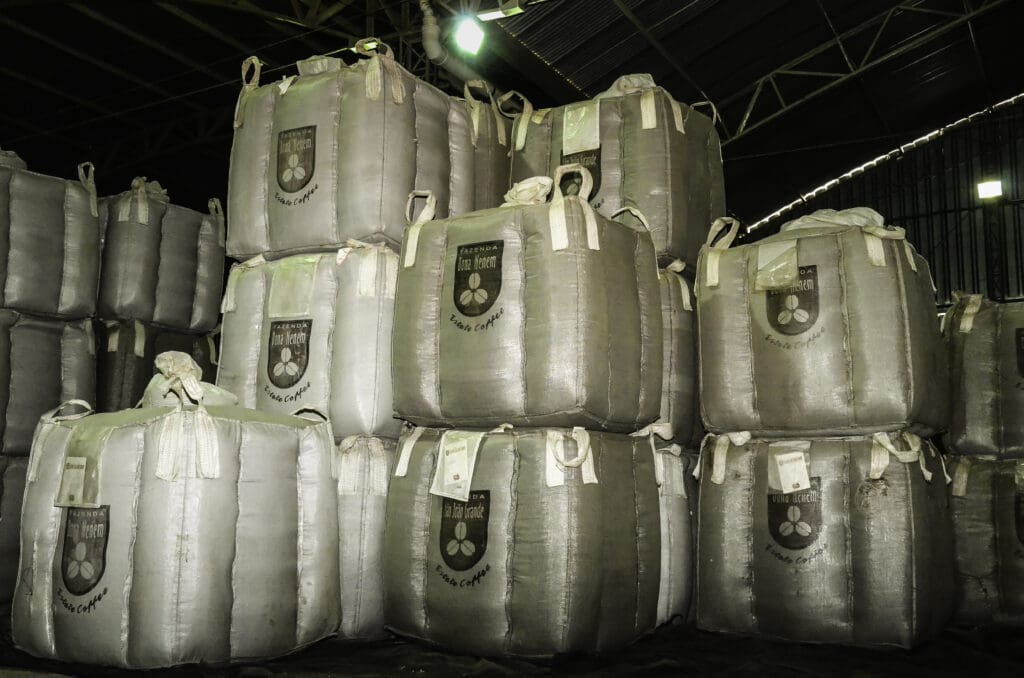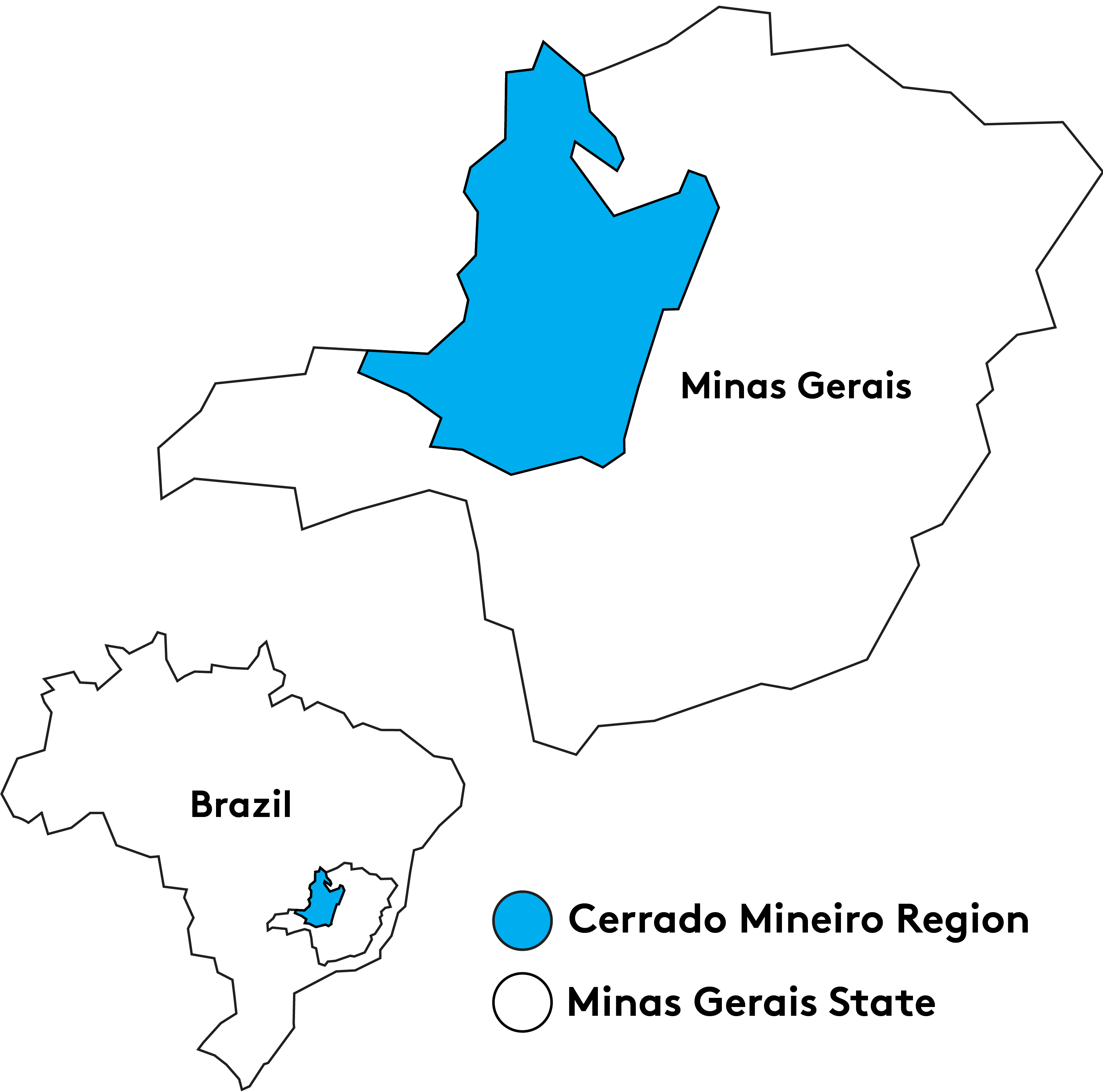The Campos family’s history in coffee dates back to 1904 when Mário Campos e Silva established his coffee farm in the village of São Francisco de Paula in the interior of Minas Gerais. The love for coffee and knowledge of how to cultivate the crop was passed on to Mário’s son, Francisco, and then on to Francisco’s son, Eduardo Pinheiro Campos, who carries on the tradition today.
Born in 1946, Eduardo Pinheiro Campos learned the trade of coffee and cattle farming early in life before leaving home at the age of 15 to attend school in Belo Horizonte, 175 km away. He became a civil engineer following his studies, eventually going on to start his own company, Emccamp Residencial, which he worked in alongside his brother Régis. Shortly after establishing himself as an engineer however, the call of agribusiness came to Eduardo. In 1977 he established his first farm, Fazenda Dona Neném, on land inherited from his father located in the city of Presidente Olegário 430 km from Belo Horizonte.
“I started working in coffee growing in the Cerrado region in 1977. In the Patos de Minas region, I was a pioneer in coffee production,” Eduardo says. Coffee farming had started to take root around cities like Araguari and Patrocínio in the Cerrado Mineiro region at this time, but the trade was new in Presidente Olegário when Eduardo got his start.
Fazenda Dona Neném covers a total of 649 hectares of land and includes 275 hectares of coffee production. Along with coffee, Eduardo also raises cattle here as well on his other farms in the area, São João Grande and Boa Sorte. Each farm also has areas dedicated to subsistence farming, where much of the food consumed by Eduardo’s family and employees is grown.
Operations at the farm balance environmental sustainability with high quality production practices. Eduardo and his team replant native vegetation on the properties, offsetting some of the impact caused by the cattle and coffee production. The team also maintains Permanent Preservation Areas between the farm’s working area and nearby water sources, preserving the natural water quality.
Harvest is executed with great care, as Eduardo explains. “My harvest is done by machines that already do selective collection. The choice depends on the degree of maturation of the beans, which is differentiated by the weight and density of each seed. We regulate the machine so that it collects only the [ripe] cherries, leaving the green coffees still ripening on the tree. Days later, we come back and collect those beans that were left in the coffee plantation, which were green before and are now ripe, at the ideal point for harvesting. After this second part, there are still some beans left, and what is left on the [tree] we do manual harvest, which we call manual transfer. The whole process is to obtain a quality [harvest].”
Further, Eduardo regularly renews the coffee trees around the property to maintain high quality standards. “We have a renewal program, and every year I renew 10% of my crops. The Cerrado is a region that has many variations, it is a place with higher average temperatures compared to other regions such as, for example, the South of Minas, and that is why some farmers, like us, have opted for 10 to 12 years redo the renewal of crops.” All of this careful work undertaken at the farm has resulted in national recognition and good performances in several competitions, including being a finalist in the Associação Brasileira de Cafés Especiais competition in 2001, 2002, and 2003, having the highest placing coffee from Cerrado Mineiro in 2013, and qualifying for the national stage of the Cup of Excellence in 2020.
“It is a pleasure to work with coffee growing,” says Eduardo. “First, because it is a family tradition. Just for my part, I’ve been in coffee growing for over 40 years. My father, aged 70, and my grandfather who had been producing for a long time… We can say that coffee has been part of the family for 100 years. And it’s more than a century of tradition in coffee growing, and always innovating”
This lot of Red Catuai coffee underwent Pulped Natural processing. Catuai was made by the Instituto Agronomico (IAC) of Sao Paulo State in Campinas, Brazil by crossing Mundo Novo and Caturra varieties. Catuai coffees are cultivated widely across Brazil, and are known for their high productivity potential.
